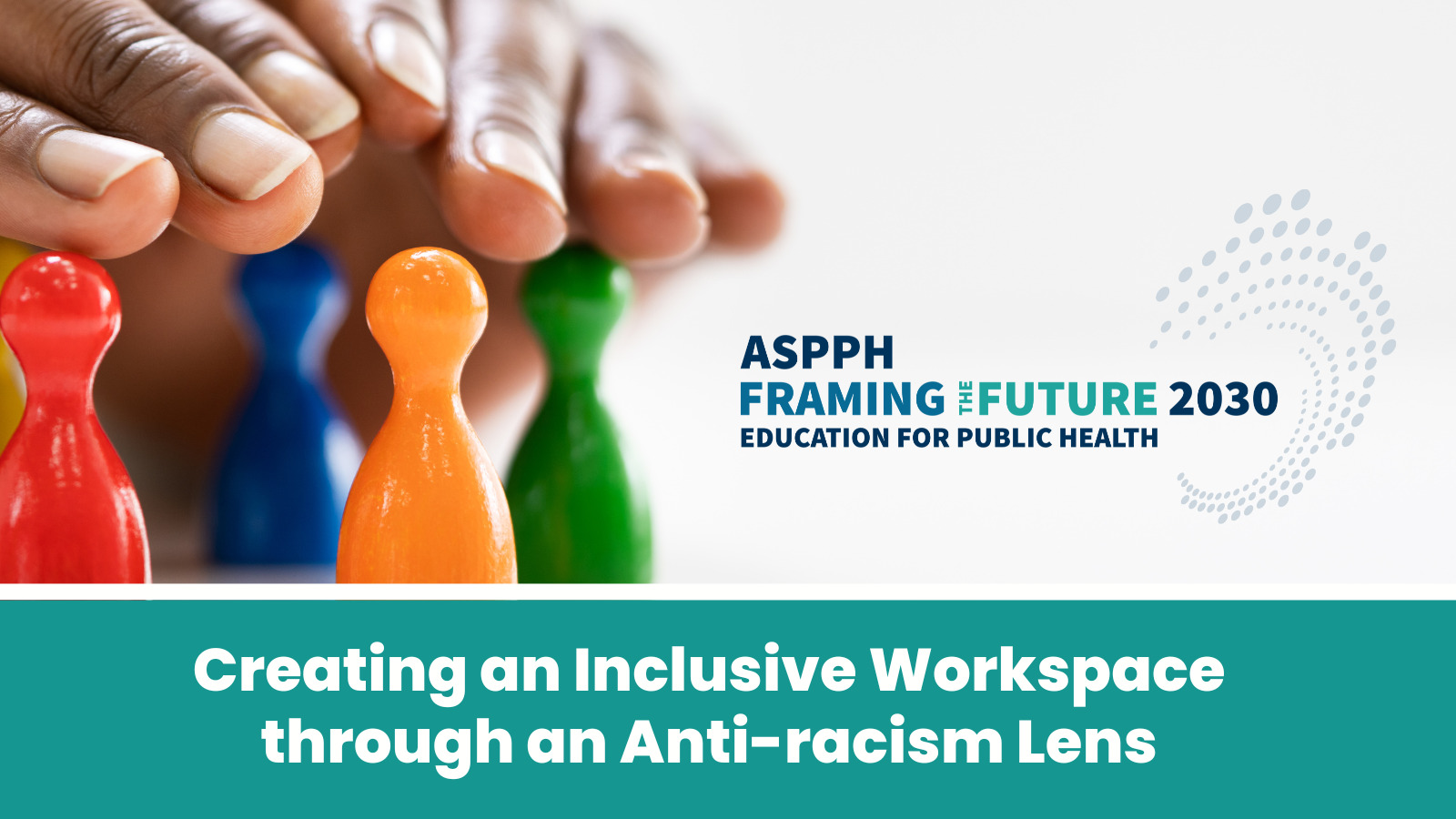ASPPH’s transformative initiative, Framing the Future: Education for Public Health 2030 (FTF 2030), aims to help ensure equitable and quality education. A significant part of this initiative involves fostering inclusive excellence through an anti-racism lens. This approach recognizes the need for systemic change in academic public health, urging a shift from merely increasing diversity to actively reimagining structures to benefit those marginalized by systemic racism.
The Inclusive Excellence through an Anti-racism Lens expert panel, comprised of 14 experts from academia and practice, outlined key steps and principles to guide this transformation in Creating an Inclusive Workspace through an Anti-racism Lens: An Example of Consensus Process in Academic Public Health.
Key steps include defining critical terms, surfacing assumptions, and recognizing historical and current actions that both perpetuate and challenge inequities. The panel emphasizes inclusive excellence as a means to leverage a full range of talents and centers anti-racism principles to dismantle power hierarchies and macro-level forces sustaining inequities.
The panel’s process underscores the importance of participatory decision-making, equal recognition of members, and accountability in partnerships. Core values such as authenticity, honesty, humility, and a commitment to doing no harm guide their work. They stress the importance of understanding and acknowledging racial trauma and the need to repair harm, while also recognizing the diversity in identities and experiences enhances the academic environment.
The panel’s ongoing commitment to these values and principles reflects their dedication to developing and sustaining inclusive environments. This approach, they believe, will lead to genuine and effective change. The University of Washington’s Center for Anti-Racism and Community Health (ARCH Center) serves as an example, adopting these principles in its approach to health equity action.
This initiative represents a significant step toward redefining education in public health, emphasizing the fundamental foundation for an inclusive and anti-racist approach in academic settings.





